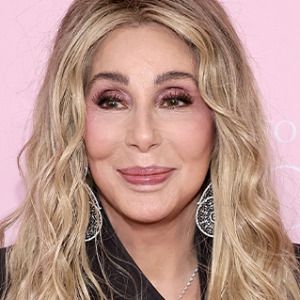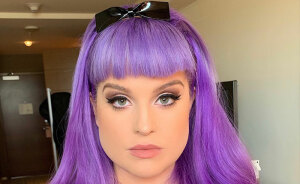
45 Of The Most Controversial Parenting Opinions To Leave You Fuming Or Nodding In Approval
InterviewParents often consider their children to be the center of their universe, and there's nothing wrong with that. They raise them in the best way they can, following traditions carried over from their own childhoods or sometimes taking advice from friends. Others, both parents and those without children, often eagerly share their thoughts on parenting—sometimes seeking an audience, and at other times, aiming to force their way of thinking onto someone else's life. Obviously, some of these opinions prove valuable, while others are simply outdated or incorrect.
A recent Twitter thread addressing this topic went viral, attracting a huge number of people intrigued by a discussion about the most controversial parental opinions. We believe that some of the perspectives the Twitter users shared deserve further exploration, which is why we have selected a list of the most polarizing posts.
Bored Panda reached out to the Twitter user @_Phoenixblvck, a counselor based in Calgary, and the OP who has started this important discussion. Phoenix shared with us the inspiration behind her viral thread: “To be quite honest, the entire idea got birthed when I saw other creators using the meme from that Tangled scene to ask for their audience’s unpopular opinions on topics ranging from academics to marriage, to career, etc. I’d say the inspiration came from seeing others do it and wanting to facilitate a discourse that we really need to keep having.”

Image credits: _Phoenixblvck
This post may include affiliate links.
Or vote for another political party, or change their religion, or have special needs, or .....it is not just that one thing that unconditionally love goes for
A proper hand shake at a proper social distance should be acceptable to most. I've shaken hands (?) with small children and they seemed to be pleased.
Pheonix continued: “The question became, ‘What controversial topic would people really want to share their opinions on, no holds barred?’ Parenting easily came to mind. It’s a conversation that comes up every now and then on X, and from mostly being a quiet observer, I could tell that a lot of people have a lot to get off their chest when it comes to how they were raised. I reckoned, ‘If this could be an opportunity for them to say these things freely, and all these opinions would be gathered on one thread where anyone can easily come to read and learn—or unlearn as the case may be, that’d be great.’ Beyond that, as a counselor, I’ve seen how much of a role parenting styles play when it comes to unresolved childhood trauma. If people could speak about what not to do, and others would be willing to take note, then it’d mean the coming generation could have it better. However, I didn’t want it to be just ‘unpopular’ opinions. I wanted every form of opinion, both popular and unpopular, to be welcomed. So, I put the tweet out. In all honesty, I wasn’t expecting that kind of response, I didn’t think the thread would go as viral as it did, but it felt really wonderful seeing so many people across countries share their thoughts and beliefs on parenting.”
And who gets to decide? Only if you are clever enough? Only if you are educated enough? Only if you have the correct views? Only if you belong to the correct party? This is arguing for eugenics. At some point people would put their own opinions as facts, and Jews, Gypsies and Disabled would be unable to procreate.
I witnessed endless scandals and domestic violence between my parents. I repeatedly saw how my father would threaten, insult and humiliate my mother. I grew up being convinced that this was normal in every family. Then, as a young adult, I spend a vacation in a friend's house. Her parents were so kind and respectful to each other. To me this was unreal, and I thought "they act it out so well. They surely must yell and insult each other when I'm not present". :(
Controversial topics often lead to strong emotions and differing viewpoints. Phoenix Blvck explained that in her opinion, disagreements are not the problem, but it’s how we disagree that matters: “Controversial topics are controversial for a reason, emotions will get heated up, and a lot of people would have opposing views. Bearing this in mind, I knew it was important for me to approach the conversation from a state of calm at all times, which wasn’t really hard, as that’s my natural predisposition. I also believe in respecting people a whole lot, as well as extending compassion even in our disagreements. This state of mind naturally helped me steer the conversations I engaged in towards being more civil than vicious. People tend to calm down when they realize that you’re not coming for them with as much heat. So it’s like when they throw fire, you douse with water, and they’re now willing to speak over the smoke. Easy and gentle, even if firm, does it.”
Expertise as a coach and counselor likely plays a significant role in the ability to address sensitive parenting topics. Asked how she strikes a balance between sharing opinions and providing guidance to her audience, the OP told us: “Opinions are what they are, subjective. So I know well enough not to speak them as though they were laws, never to be broken. At the same time, psychological facts are what they are, proven. Notwithstanding, there’s always room for exceptions because humans will always diverge from the 'norm'. We’re interestingly complicated that way. As a result, even when I speak on psychological facts as a counselor, I acknowledge that there are exceptions, so when people present those exceptions, I’m more open to discussing with them, rather than just reestablishing my words as the sole truth, and shutting them down. Same with my opinions. My understanding of human relations, thanks to my background in counseling, certainly helps me communicate better, and dealing with various kinds of personalities as a coach helps me know just the right amount of emotional intelligence to apply to make people feel seen and heard. And everyone loves that, do we not?”
Oooh, louder for those in the back. Many parents I know (including mine) are like: "I raised you, therefore you are my property and you must do what I say. Your opinions and feelings are irrelevant as long as you live under my roof. And be careful not to ever talk back to me, unless you wish to sleep outside in the street."
Also girl dads who have a creepy almost incestuous possessiveness of their daughters virginity. I have daughters and they were both told the consequences of not being careful and how to watch out for themselves. Rarely, if ever do you see boys go through the same. Y’all just need to stop
Phoenix told us more about the opinions shared in the thread that stood out to her: “A lot of them were really good. I think the ones that particularly did it for me were those that spoke about treating children as people with autonomy and boundaries, rather than as extensions of their parents. I wholeheartedly agree.” As for interactions, the OP mentioned situations when people took her replies to some comments out of context with meanings she’d never intended: “It reminded me to be more intentional about my responses in order to convey accurate meaning, and that even at that, there’d still be people bent on misunderstanding you, based on their own misconceptions. As such, learned to make my peace with being misunderstood all over again.”
We have also contacted the family & relationship empowerment coach Celia Kibler, who was kind enough to share with us her professional insights regarding controversial parenting opinions.
That's the kind of parent that will wonder one day why their children never visit them.
Abusive partners will do this too. It’s always wrong, regardless of who does it
With over 40 years of experience, Kibler specializes in teaching respectful, cooperative parenting systems for parents of toddlers as well as breaking the generational cycles of dysfunction and abuse. The expert told us about some of the most divisive and controversial opinions about parenting, like the belief that you can’t parent a child like your parents parented you or grandparents parented you. Celia explained: “Although we never want to repeat the generational cycles of dysfunction and abuse, there are many generational strategies that are extremely important in raising a confident, self-sufficient, respectful, happy adults. The methods that are important in raising every generation are things like schedules and routines, limits and boundaries, proper consequences, manners, and calm communication.“
"The point that there is social media, technology, and current events does not override the need for basic methods of raising a kind, compassionate, respectful adult that can handle disappointment and knows emotional intelligence is always necessary for every generation. It is necessary for parents to realize that they are their child’s strongest role model and that whatever they do, they give their child permission to do. For example, well-mannered children come from well-mannered parents.” Kibler also mentioned other popular opinions that are often polarizing for society, such as “giving your child too much love and nurturing will spoil them”, and “time outs are taboo”.
And also I went buck wild any chance I did get away from my mother
This sentiment is often misconstrued as children having equal rights in decision making in the family. No, the parent HAS to tbe the one making the decisions. Input from the child is valuable and explanations when this input is not heeded is valuable for the child to grow, but the parent has the last word. We have the word ‘childish’ for a reason. And we have the expression ‘responsible adult’ for a reason.
Controversial opinions can challenge the traditional norms of parenting. We were curious how parents can navigate the tension between wanting to embrace new ideas while also staying grounded in their own values. Celia Kibler shared with us: “Parents often will read one line and take it as something they should implement without reading or listening to the specifics of how something should be properly done. Choices are a good example because offering choices to a child is an important way to empower their individuality and teach responsibility. But offering a choice can be done as wrong as it can be done right. If a parent doesn’t learn how to do a technique that is successful for a child, it will fail and cause confusion for that parent simply because it was not done right and they didn’t take the time to learn everything they could about that specific method.”
Having and being responsible for a kid is completely different than being one
And in some cases, you literally mess up their life. My mother used to compare me with my classmate (who was very good in math and physics): "Why can't you be smart like him? I'm sure he does math problems every day! But you are stupid and lazy!" Fast forward several years, I was a college student, and my former classmate now had a crush on me. And I couldn't stand him, just because my mother's words were so fresh in my mind.
According to Kibler, another challenge parents have with new ideas they learn about is the lack of consistency given to any one technique: “If there is no consistency, most strategies will fail. Consistency itself is one of the most important keys of parenting.”The expert added: “It is important to know that our heart and intuition will know what’s best for our child. Stress, which is often caused by trying to live up to what society thinks we should be doing, will create more hardship than if we do what we think is best. A good example of that is when society says if you don’t breastfeed your child, you are a bad mom, when often there may be moms that are uncomfortable with it for whatever reason, and alleviating the stress of trying to nurse a baby helps everyone become more relaxed and happy during what is a naturally sometimes difficult stage of life when we welcome a new baby. There are lots of healthy formula-fed children with parents that are great parents and they have been raised successfully into adulthood.”
It's like on the planes, you put the oxygen mask on yourself first then on the child. If you are not ok how are you going to have a good relationship with your kid?
The internet provides a platform for diverse parenting opinions to be shared widely. We were wondering how exposure to such a variety of viewpoints can influence parents' decision-making processes. The family & relationship empowerment coach said: "There are systems for everything in life. When you start a career, you learn how to do something, going to the bathroom has a system, cooking a meal has a system, all parents need a system too, to create family harmony but many think it’s ridiculous to learn a better way."
"There are a lot of ideas out there for parents to access and implement. As I said before, though, often these ideas are tried, sometimes incorrectly without consistency, and failed. Leading to the idea that I hear so often, ‘I’ve tried everything, and nothing has worked!’ To which I usually ask, what have you tried and how long were you consistent with that strategy?"
Lastly, Celia Kibler added: "The problem with too much information is too much information. Parents don’t know what to believe, what to implement, and how to react or act, they feel judged by others and then start feeling like a bad parent and a failure. It can also lead to couples believing two different things and parenting in conflicting ways, causing a lot of chaos, stress, and confusion for their child, which is destructive to the relationship of the parents. It is best for parents that truly want to improve the cooperation of their children and help the harmony of their family to learn a complete system, not just utilize a few tips.”
i actually agree with nesto. it’s important to be grateful for what you have. im not saying you need to serve your parent for the rest of your life to make up for it, nor am i saying this is okay for the parent to use against the child in an argument. all i am saying it that it is important for children to acknowledge that some people have less, and they need to practice gratitude.
I swear, sometimes I think the only reason some people have children is to have endless content for their social media 😫
I think of the times my dad offered me guidance. And i wonder about how things would have been if i'd been smart enough to listen.
my dad was a parent that purposely parented with fear and he thought he was the best dad ever. he used to purposely make me scared of him (he used to tell me most nights before bed he could read my mind and if I thought something bad he would know it and he would tell everyone what bad thing I was thinking about) because he thought it would make me more submissive to his rules. that was not helpful to my growth in any way
My mother wanted to use me as her therapist to talk about her negative emotions. Our relationship faltered partially due to that (amongst other things).
I feel this one. I used to wish to have guests at home because only then my mother would be nice to me (for the guests to see what a "good parent" she was). Otherwise, she'd constantly scream, insult and even slap me for minor mistakes (like, if I dropped a teaspoon on the floor).
Neither are doctors visits, injuries, crying, potty training, or any kind of trauma or moment where someone might make fun of them for the rest of their life
My son's iPad has access to 3 sites between 7am and 7pm. He actually found a loophole in the parenting controls. I added the specific URL's to some train videos on YouTube as they were embedded in one of the sites. However doing that actually opened up all of YouTube and he discovered that pretty quickly. It was quite surprising to see him watching other videos when I thought that only the specific ones were allowed.
I wish abortion was such an easy option for everyone. Forced birth should be a crime, not the other way around 😡
Oh man I heard it all as a kid .. continuously and repeatedly .. all the awful stuff that happened to her. While she was ignoring all of the awful stuff that was happening to me .. Thanks mom
I’m not a slave either, though. I will ask my kids for help - they can learn skills that way (like making their own meals and cleaning their own spaces), I can spend time with them doing tasks together that I wouldn’t have if I did it by myself AND I can also, if they are lucky, motivate them to earn pocket money by doing jobs, which is also a valuable life lesson.
When my son was 18 months, it became a nightmare to feed him. Every meal was an opposition game. We tried a lot of things until we realised he wanted to eat by himself. Meals became a mess but at least, he ate. When my daughter was 18months, it became a nightmare to feed her. We thought "aha, we already know this game". Well it was not the same game. She has sensory issues, some textures trigger her gaging reflex. She needed pieces to chew with her 2 teeth, purées didn't work for her, it still the same nowdays.
When I was a baby, I tried to eat the cats and the dog. Whilst this in retrospect surely wasn't the best thing to let me do, as these animals could have retaliated against me, I now almost never get sick because neither cat nor dog paws are clean. Also, toddlers are still dumb so better don't leave anything out they might swallow.
My MIL parented with thick layer of guilt .. and all of her kids have paid a high price for her cheap methods of control.
I (childfree) had this conversation with a coworker (mom of a 9) just this morning. Mom yelled at kid for something. Kid calmly pointed out Mom had it wrong. Mom realized it, and APOLOGIZED to the 9. I was blown away.
The best way to evaluate the life choices of an older person is by whether or not any of their adult children will still speak with them.
I see a lot of kind people who confuse healthy boundaries with being selfish and vice versa. When nobody depends on you, being selfish is a good enough boundary, you just walk away when you don’t like it. But with kids there has to be a very precise boundary where you neither walk over them nor them over you. Kindness won’t figure that out.
Spanking actually is illegal in a whole bunch of countries. Recently there was a post on BP with a map of countries where it isn't legal to spank/hit your own child, and it involves most of Europe.
And homeschooling often doesn't work out at all and leaves kids unsocialized as they were never with others their age
This is why Grandparents are a must. Dropping the kids with Grandma and Grandpa for a week on school holidays was a treat for kids and parents. Not so sure about Grandma and Grandpa though :P
So you can’t *ever^ withstand an awkward conversation with someone you’ve met before but have mostly forgotten? Ooh-boy do I have some fun news about middle-age for you! That shït never ends! The older you are, the more people you’ve likely forgotten! You just learn to nod, and be polite, and try not be such a self centered idiot
As much as I want to agree with this one, I just can't. Financial stability is a fragile thing; what happens to someone who had it when the kids were born, but no longer does? What economical status must someone have before they are "allowed" to raise a family? When does "poor people shouldn't have babies" become "Only rich people should have babies"?
Everything you do to others may have bad impact even when you mean well.
This is not a universal thing. I have a kid with ADHD and a kid with ASD and a third kid and a husband that works crazy hours. While I try to give them separate activities where I am able, it’s simply not logistically possible at time AND sometimes they need each other for a bit of scaffolding to feel secure in trying new places and activities.
Excuse me, but this one is REALLY homophobic/transphobic and discriminatory against single parents that had to separate from a toxic spouse.
Going to add to this one .. 'when they are young'. As kids mature, if you've done your job, they may need less parenting and more companionship ..
I'm 65, and a parent. A while back, i asked MY mum, 'how old do kids have to get before you stop worrying about them?'. Her answer: 'They NEVER get that old'.
Am I the only one that had to reread this a few times to understand what was being said?
Gentle parenting is more about letting your kid feel and identify their emotions. Like I say "no" the kid is disappointed and frustrated at hearing no and you acknowledge that it's ok to feel disappointed when you don't get the answer you want but the answer is still "no."
Children are not pets, pets are not children. There are some similarities to caring for a pet and caring for a young child, but it is NOT the same thing at all. Please stop pretending it is. I don't care if you have pets, or kids or both or neither, but if you go around claiming you know what it's like to raise a human because you own a dog you just sound like an idiot.
Some of these sound like angry teens annoyed at their parents for making a few mistakes. People without life experience of failing and then learning from and succeeding at stuff. Yes some of these are obvious, don't beat, starve, or rage at your kids, but most parents are good, kind, loving and flawed. Parents make mistakes. You will make mistakes. If we waited till we were all perfect the human race would die out.
As a person who has two adult children, this is my personal perspective. (1) kids are all different, and they don't come with an instruction manual, and we aren't born knowing how to be parents. You WILL make mistakes and do things wrong. Don't let it bother you too much. (2) Be the person you want your kids to be. Kids don't listen to what you say, they watch what you do. (3) Be careful of the lesson you think you're teaching your children. What you teach, and what they learn are two entirely different things. (4) Teens are rebellious. They will reject you and everything you stand for, and will probably hate you all through their teen years and blame you for everything they don't like about themselves. Don't take it too hard. It's a necessary part of establishing their identity as an individual, separate from their identity as your child. A lot of them gradually come back.
Some of these sound like angry teens annoyed at their parents for making a few mistakes. People without life experience of failing and then learning from and succeeding at stuff. Yes some of these are obvious, don't beat, starve, or rage at your kids, but most parents are good, kind, loving and flawed. Parents make mistakes. You will make mistakes. If we waited till we were all perfect the human race would die out.
As a person who has two adult children, this is my personal perspective. (1) kids are all different, and they don't come with an instruction manual, and we aren't born knowing how to be parents. You WILL make mistakes and do things wrong. Don't let it bother you too much. (2) Be the person you want your kids to be. Kids don't listen to what you say, they watch what you do. (3) Be careful of the lesson you think you're teaching your children. What you teach, and what they learn are two entirely different things. (4) Teens are rebellious. They will reject you and everything you stand for, and will probably hate you all through their teen years and blame you for everything they don't like about themselves. Don't take it too hard. It's a necessary part of establishing their identity as an individual, separate from their identity as your child. A lot of them gradually come back.

 Dark Mode
Dark Mode 

 No fees, cancel anytime
No fees, cancel anytime 












































































































































